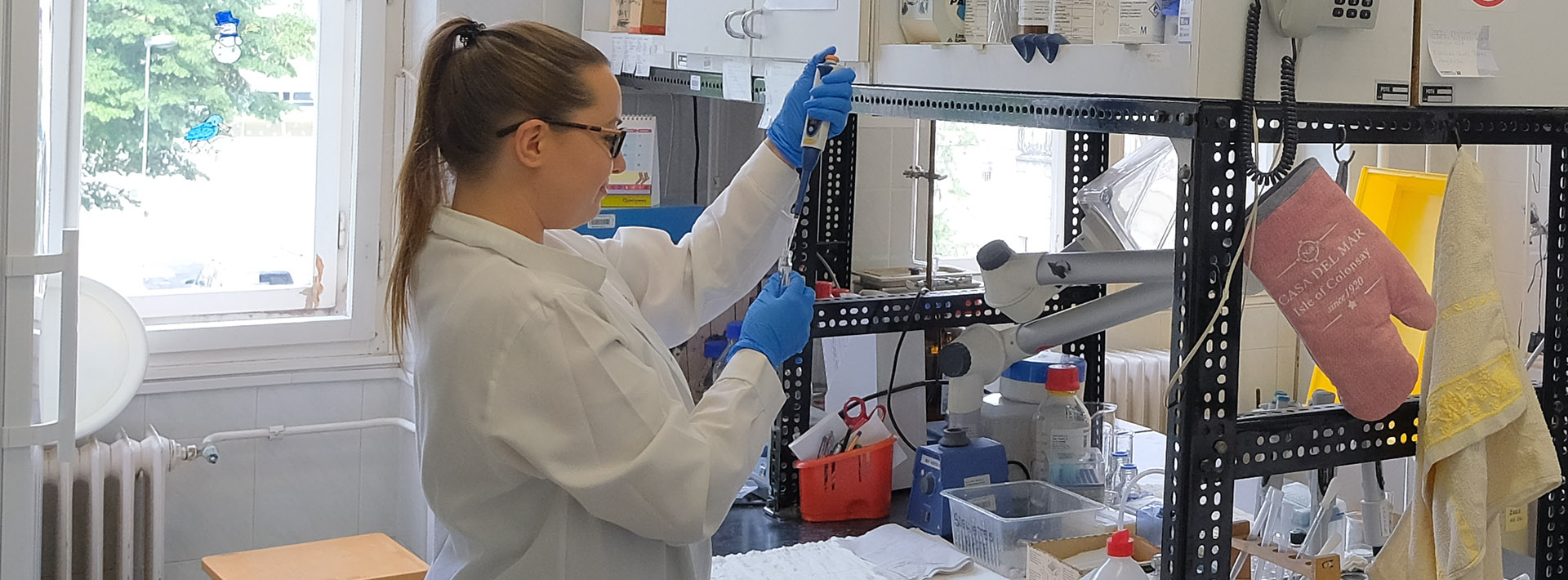Data
Official data in SubjectManager for the following academic year: 2024-2025
Course director
-
Fenyvesiné Páger Csilla
assistant professor,
Institute of Bioanalysis -
Number of hours/semester
lectures: 12 hours
practices: 0 hours
seminars: 0 hours
total of: 12 hours
Subject data
- Code of subject: OPF-KFO-T
- 1 kredit
- Pharmacy
- Optional modul
- autumn
-
Course headcount limitations
min. 5 – max. 50
Available as Campus course for . Campus-karok: ETK TTK
Topic
The course presents six different methods of capillary electrophoresis, starting with the theoretical foundations and explaining various pharmaceutical applications. It provides an insight into the difficulties of the mass spectrometry connection and its development.
Capillary electrophoresis can be used as a modern analytical separation technique for the separation and determination of metal ions, inorganic anions, chiral compounds, peptides and proteins, carbohydrates, and even whole cells and viruses. It is also suitable for determining the physico-chemical characteristics of pharmaceutical compounds and testing their medicinal effectiveness.
Lectures
- 1. Evolution of separation methods - Fenyvesiné Páger Csilla
- 2. Development of new electrophoretic methods - Fenyvesiné Páger Csilla
- 3. Theory of electrophoresis - Fenyvesiné Páger Csilla
- 4. Separation modes in electrophoresis, Zone electrophoresis - Fenyvesiné Páger Csilla
- 5. Isoelectric focusing theory, IEF methodology, sandwich injection - Fenyvesiné Páger Csilla
- 6. Isotachophoresis - Fenyvesiné Páger Csilla
- 7. Gel electrophoresis - Fenyvesiné Páger Csilla
- 8. High resolution analysis of macromolecules - Fenyvesiné Páger Csilla
- 9. Chiral analysis of drugs - Fenyvesiné Páger Csilla
- 10. Lab-on-a-chip methodology - Fenyvesiné Páger Csilla
- 11. Application in laboratory diagnostics - Fenyvesiné Páger Csilla
- 12. Coupling with mass spectrometry - Fenyvesiné Páger Csilla
Practices
Seminars
Reading material
Obligatory literature
Literature developed by the Department
Notes
Recommended literature
James Landers (ed.): Handbook of Capillary Electrophoresis, CRC Press, 1994
Ann Van Schepdael: Microchip Capillary Electrophoresis Protocols, Springer, 2015
Conditions for acceptance of the semester
No additional conditions.
Mid-term exams
Form of exam: Test (a score of 50% is required for a sufficient grade)
The required information for the test will be explained in the course.
Making up for missed classes
By personal consultation.
Exam topics/questions
https://aok.pte.hu/hu/egyseg/160/oktatas
